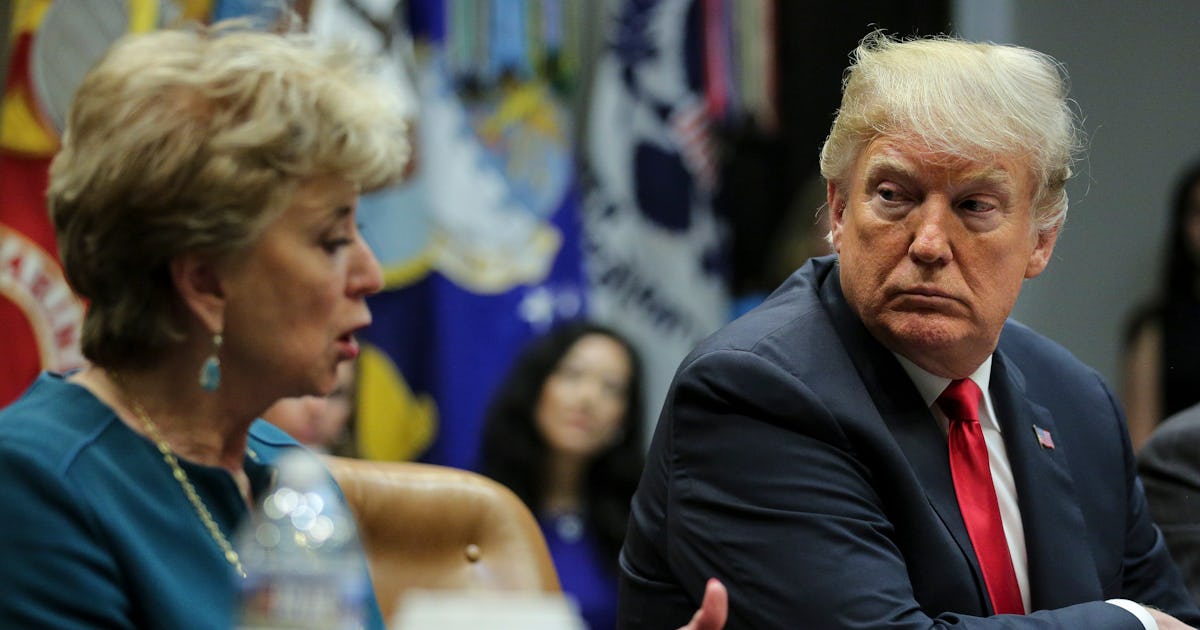US inflation accelerates to 2.7% as Trump's tariffs start to bite | Euronews
ADVERTISEMENT
Consumer prices rose 2.7% in June from a year earlier, the US Labor Department said on Tuesday, up from an annual increase of 2.4% in May. On a monthly basis, prices climbed 0.3% from May to June, after rising just 0.1% the previous month.
Worsening inflation poses a political challenge for President Donald Trump, who promised during last year's presidential campaign to immediately lower costs. The sharp inflation spike of 2022-2023 was the worst in four decades and soured most Americans on former President Joe Biden's handling of the economy. Higher inflation will also likely heighten the Federal Reserve's reluctance to cut its short-term interest rate, as Trump is loudly demanding.
Trump has often insisted in comments on social media that there is "no inflation" and that as a result, the central bank should swiftly reduce its key interest rate from its current level of 4.3% to around 3%.
Excluding the volatile food and energy categories, core inflation increased 2.9% in June from a year earlier, up from 2.8% in May. On a monthly basis, it picked up 0.2% from May to June. Economists closely watch core prices because they typically provide a better sense of where inflation is headed.
“While US inflation remains on the benign side of things compared to recent history, today’s figures perhaps mask darker signs that may just push the US one step closer to a stagflationary environment," Lindsay James, investment strategist at Quilter, said, adding that inflation as well as core inflation are both "moving away from the Federal Reserve’s 2% target".
The uptick in inflation was driven by a range of higher prices. The cost of gas rose 1% just from May to June, while grocery prices increased 0.35%. Appliance prices jumped for the third straight month.
Trump has imposed sweeping duties of 10% on all imports, plus 50% levies on steel and aluminium, 30% on goods from China, and 25% on imported cars. Just last week, the president threatened to hit the European Union with a new 30% tariff starting 1 August.
The acceleration in inflation could provide a respite of sorts for Federal Reserve Chair Jerome Powell, who has come under increasingly heavy fire from the White House for not cutting the benchmark interest rate.
Powell and other Fed officials have emphasised that they want to see how the economy evolves as the tariffs take effect before cutting their key short-term rate. The Fed chair has said that the duties could both push up prices and slow the economy, a tricky combination for the central bank since higher costs would typically lead the Fed to hike rates while a weaker economy often spurs it to reduce them.
Trump on Monday said that Powell has been "terrible" and "doesn't know what the hell he's doing". The president added that the economy was doing well despite Powell's refusal to reduce rates, but it would be "nice" if there were rate cuts, because people would be able to buy housing a lot easier".
“Trump continues to bang the drum for the strength of the US economy and the need for lower interest rates, but that is not what the data is suggesting," said James. "With labour markets remaining pretty solid so far, the objective of price stability would usually warrant either a hold or a hike in interest rates at the Fed."
Last week, White House officials also attacked Powell for cost overruns on the years-long renovation of two Fed buildings, which are now slated to cost $2.5 billion (€2.14bn), roughly one-third more than originally budgeted. While Trump legally can't fire Powell just because he disagrees with his interest rate decisions, as the Supreme Court has signalled, he may be able to do so for a clear cause such as misconduct or mismanagement.
“It is now seeming likely that the second half of the year will see further price pressures, coupled with potentially stagnating growth," James said, adding that "so far inflation has been held in check by the high level of inventories built up before Liberation Day".
Some companies have said they have already raised prices or plan to do so as a result of the tariffs, including Walmart, the world's largest retailer. Automaker Mitsubishi said last month that it was lifting prices by an average of 2.1% in response to the duties, and Nike has said it would implement "surgical" price hikes to offset tariff costs.
But many companies have been able to postpone or avoid price increases, after building up their stockpiles of goods this spring to get ahead of the duties. Other companies may have refrained from lifting prices while they wait to see whether the US is able to reach trade deals with other countries that lower the duties.
You may also like...
Diddy's Legal Troubles & Racketeering Trial

Music mogul Sean 'Diddy' Combs was acquitted of sex trafficking and racketeering charges but convicted on transportation...
Thomas Partey Faces Rape & Sexual Assault Charges

Former Arsenal midfielder Thomas Partey has been formally charged with multiple counts of rape and sexual assault by UK ...
Nigeria Universities Changes Admission Policies

JAMB has clarified its admission policies, rectifying a student's status, reiterating the necessity of its Central Admis...
Ghana's Economic Reforms & Gold Sector Initiatives

Ghana is undertaking a comprehensive economic overhaul with President John Dramani Mahama's 24-Hour Economy and Accelera...
WAFCON 2024 African Women's Football Tournament

The 2024 Women's Africa Cup of Nations opened with thrilling matches, seeing Nigeria's Super Falcons secure a dominant 3...
Emergence & Dynamics of Nigeria's ADC Coalition

A new opposition coalition, led by the African Democratic Congress (ADC), is emerging to challenge President Bola Ahmed ...
Demise of Olubadan of Ibadanland
Oba Owolabi Olakulehin, the 43rd Olubadan of Ibadanland, has died at 90, concluding a life of distinguished service in t...
Death of Nigerian Goalkeeping Legend Peter Rufai

Nigerian football mourns the death of legendary Super Eagles goalkeeper Peter Rufai, who passed away at 61. Known as 'Do...





